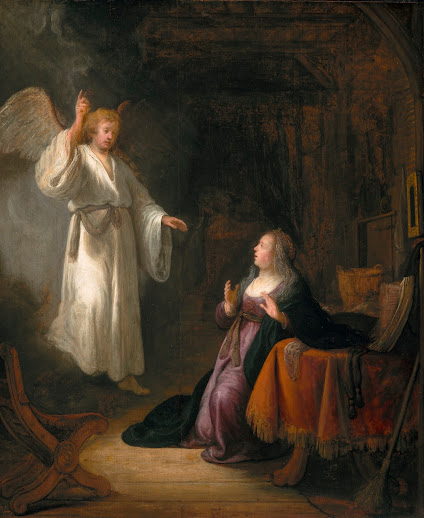He was in the world,
and the world came to be through him,
but the world did not know him.
He came to what was his own,
but his own people did not accept him.
The light of the world came into the world. The Word through whom all things were made became flesh and spoke to us. How could a light so bright be missed? How could words so beautiful and true be ignored?
And this is the judgment: the light has come into the world, and people loved the darkness rather than the light because their works were evil (See John 3:19).
Light and words are things which reveal and make known by their very nature. It takes a certain intention on the part of those to whom they come to ignore or reject them. But perhaps we can understand this a bit. It could be as though we recently woke up, eyes still tired, and saw a family member about to flip the switch of some particularly bright lights, and we quickly closed our eyes before they could. It could be loud words about complicated subjects spoken too soon after we woke up. Perhaps we covered our head with a pillow to mute them for the time being. For the best of us, there is always a transition whereby we grow accustomed to the light.
We do want to turn on the lights eventually, and to listen to whatever important things our family members have to say. Yet some resist the light and the Word in an ongoing and obstinate fashion. Perhaps their house is so dirty that they prefer to keep the lights dim. Perhaps their problems are so dire that they prefer to ignore them rather than to hear words about them. This is a hard position to leave, because it feels a little bit like peace, though it is faux peace. Leaving a house dirty until it results in sickness isn't true peace. Refusing to address important words until financiers come to foreclose on a house isn't freedom.
While light may seem first to be something very alien to us, when we grow used to it we discover that we were in fact always meant to live in the light, that it is only in the light that we can thrive.
What came to be through him was life,
and this life was the light of the human race;
The Word who is the light of the world came to us as a gift. This means that we no longer need to try to keep the lights on ourselves. We no longer need feel at a loss for the right words that will finally make sense of our lives and give us direction. Our own attempts at light are overcome by darkness. Our own attempts at lofty words quickly come to silence. But not so for him who is the light, him who is the Word of God.
the light shines in the darkness,
and the darkness has not overcome it.
In the light of him who is that light we do encounter the ugliness of what was hidden before. But this is encountered only so that we can move beyond it to new life. Welcoming the light allows the light to come in and change that on which it shines. Welcoming the Word allows the power of the Word to make us new creations. We become lights ourselves by virtue of his light. We ourselves are reordered by the Word to speak his words to others.
But to those who did accept him
he gave power to become children of God
The light may be difficult for unaccustomed eyes to behold. But God went to great lengths to make it as appealing as possible. Think of the star, the angels, the shepherds, the mother and father surrounding the infant in a manger. This is the light. Even though our own shortcomings are exposed around this manger we are still transfixed, enchanted, romanced, and cannot look away from the radiant beams from his holy face.
And the Word became flesh
and made his dwelling among us,
and we saw his glory
We need more conversion to the light, more fidelity to the Word. The grace of this season can be found in the beauty of that which we celebrate. In prayer let us join the Holy Family gathered around their son in Bethlehem. At this moment he has made himself evident as the desire of our hearts in a way that is hard to explain but impossible to deny. Come, let us adore!
If the babe in the manger seems too simplistic for a complicated world, that is an illusion. The world is complicated. The antichrists that oppose the truth are complicated. The reality is simple. The truth is that God's love for us is real and we are invited to share it. This is a truth we know, but of which we need to be reminded. It is a truth which can make us powerful if we remember to walk in it.
But you have the anointing that comes from the Holy One,
and you all have knowledge.
It is the Word speaking and the light shining that makes us sons and daughters in the Son. Just as the Father anointed Jesus so too does he anoint us to go and proclaim what we have seen and heard.
Let the heavens be glad and the earth rejoice;
let the sea and what fills it resound;
let the plains be joyful and all that is in them!












